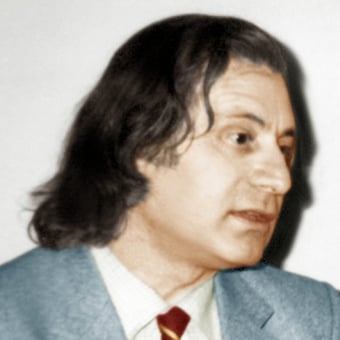
Alfred Schnittke
Alfred Schnittke was a leading Soviet composer from the post-Shostakovich generation * Father of German-Jewish extraction from Baltic area, mother a Volga German of Catholic background * The young composer’s first language is German, and from 1945 to 1948 lives in Vienna where he studies piano and hears much classical music * From 1953 to 1961 studies at Moscow Conservatoire with Evgeny Golubev (composition) and Nikolai Rakov (orchestration) * In 1962 begins work as film-composer, eventually writing scores for more than 60 films * Serious compositions in 1960s show him mastering various languages of modern music, producing a colourful and expressive synthesis in a work like Sonata for Violin and Piano No.2 (‘Quasi una sonata’) * In 1972 completes Symphony No.1, a monumental and tragic fresco of collage and stylisation, compared to Solzhenitsyn’s The Gulag Archipelago, whose first performance caused conflict with the authorities * Invents the term ‘polystylism’ to describe such working with different styles * From late 1970s increasingly deeply religious in outlook * In 1980s moves away from ‘polystylism’ towards more integrated and personal style, as seen in Viola Concerto and Cello Concerto No.1 * Central to middle-period output are many string concertos for the leading players of his day including Gidon Kremer, Yuri Bashmet and Mstislav Rostropovich * In 1985 has first of several strokes * From 1989 he and his wife spend more time outside USSR, travelling or living in Hamburg * Last years marked by marked outward fame and inward withdrawal from the world, in pieces like Symphony No.6 and String Quartet No.4 * Dies after long illness
Works by Alfred Schnittke include:
Symphonies Nos.1-8 (1972-98)
Life with an Idiot opera in 3 acts (1991)
Viola Concerto (1985)
Works by Schnittke are represented by Boosey & Hawkes/Sikorski for the world
Looking ahead: new arrangement of Piano Quartet for Piano and Strings by Omer Meir Wellber performed by London Philharmonic Orchestra (1 Mar) and at Gewandhaus Leipzig ( 27 Mar) conducted by Wellber.
"How important it is to catch up with yourself! There are enormous forces lurking within everyone, but many people die without having discovered this." — Alfred Schnittke
